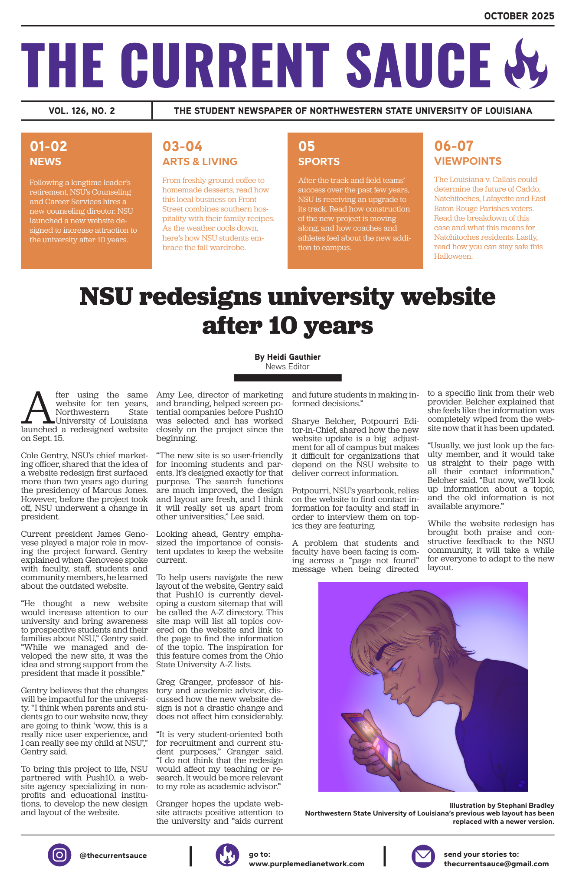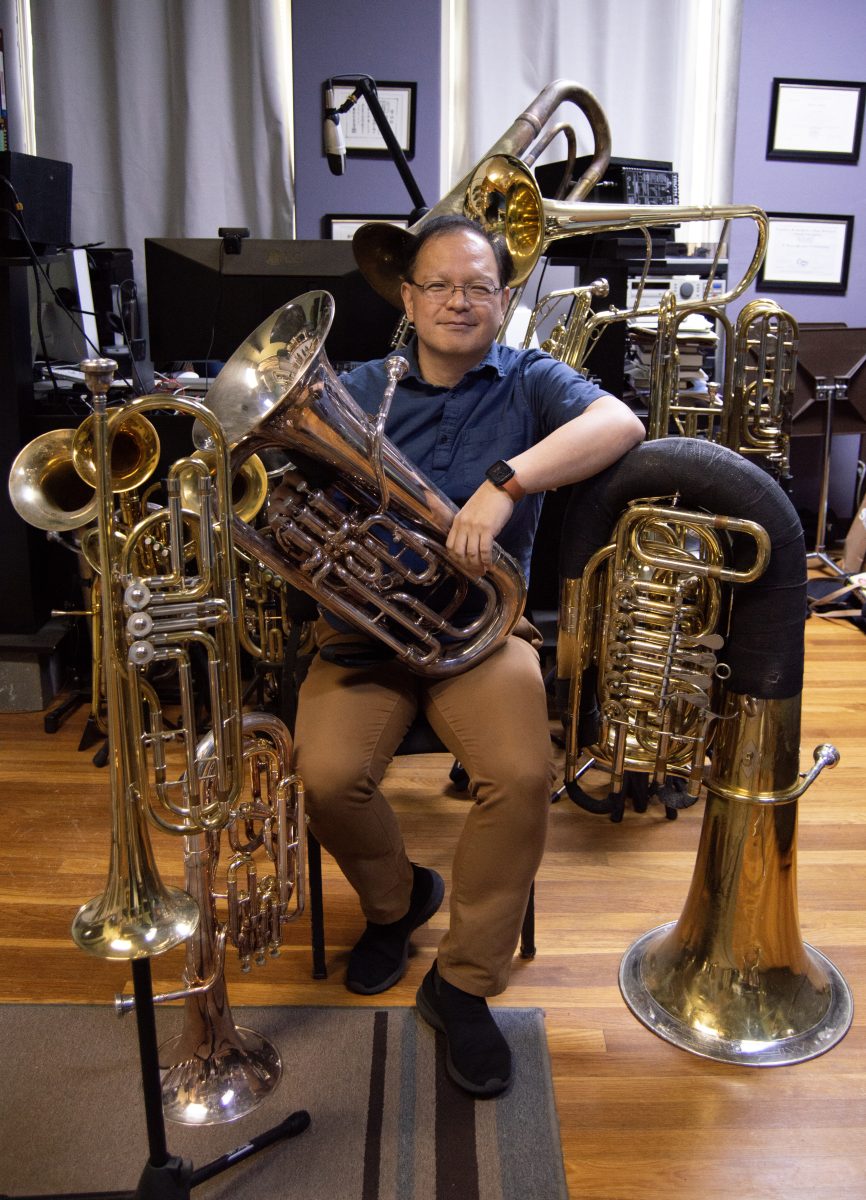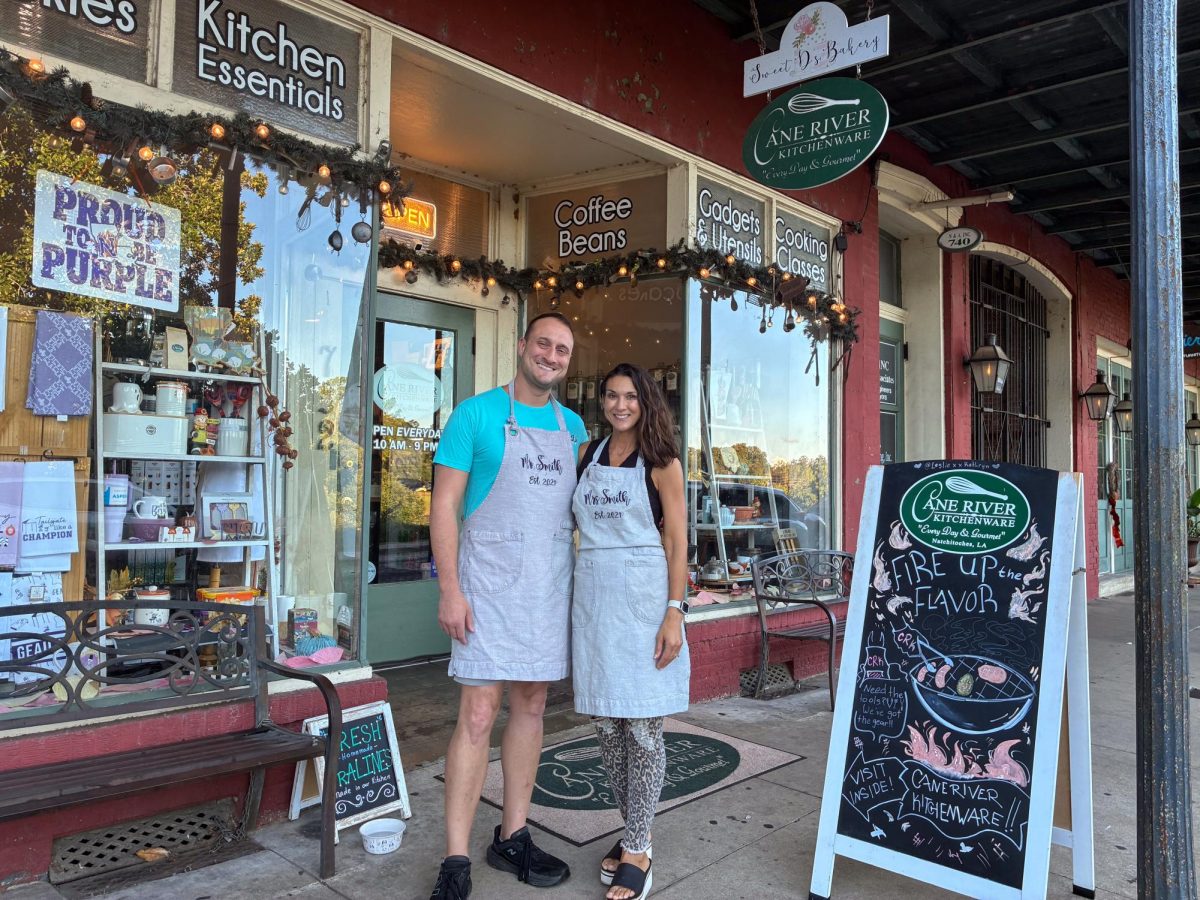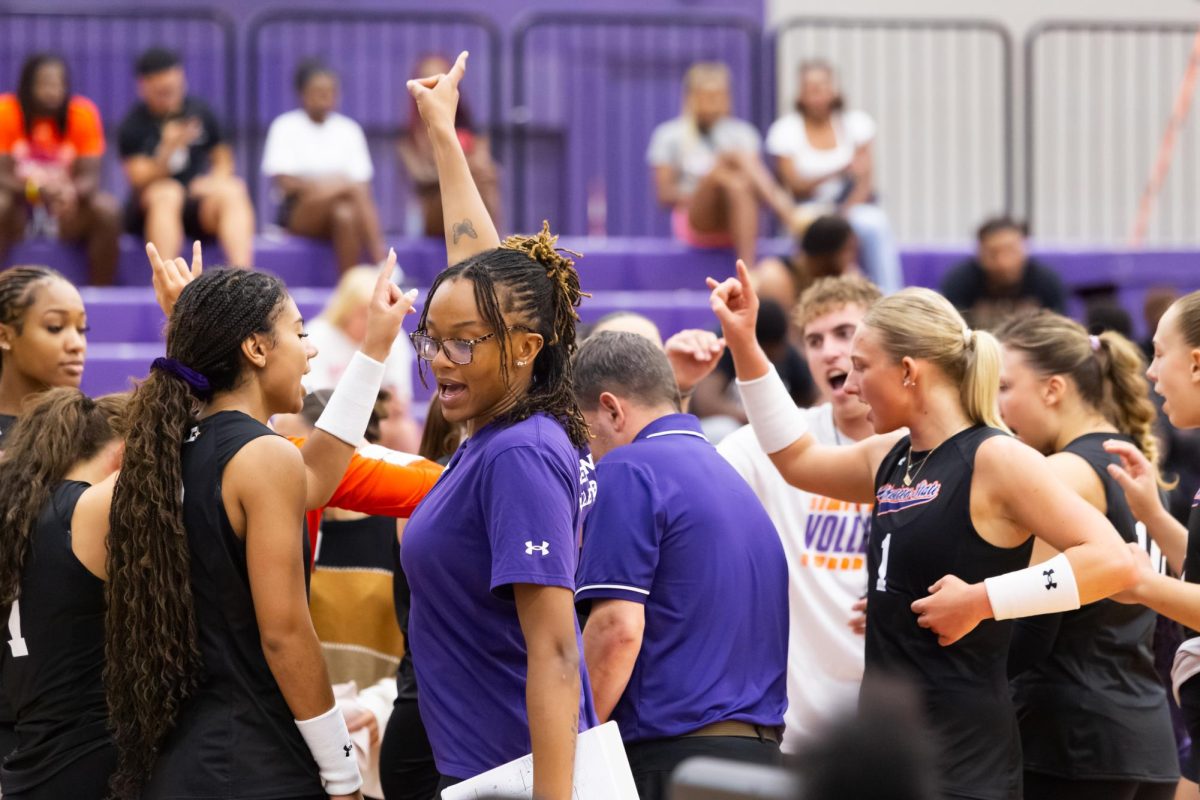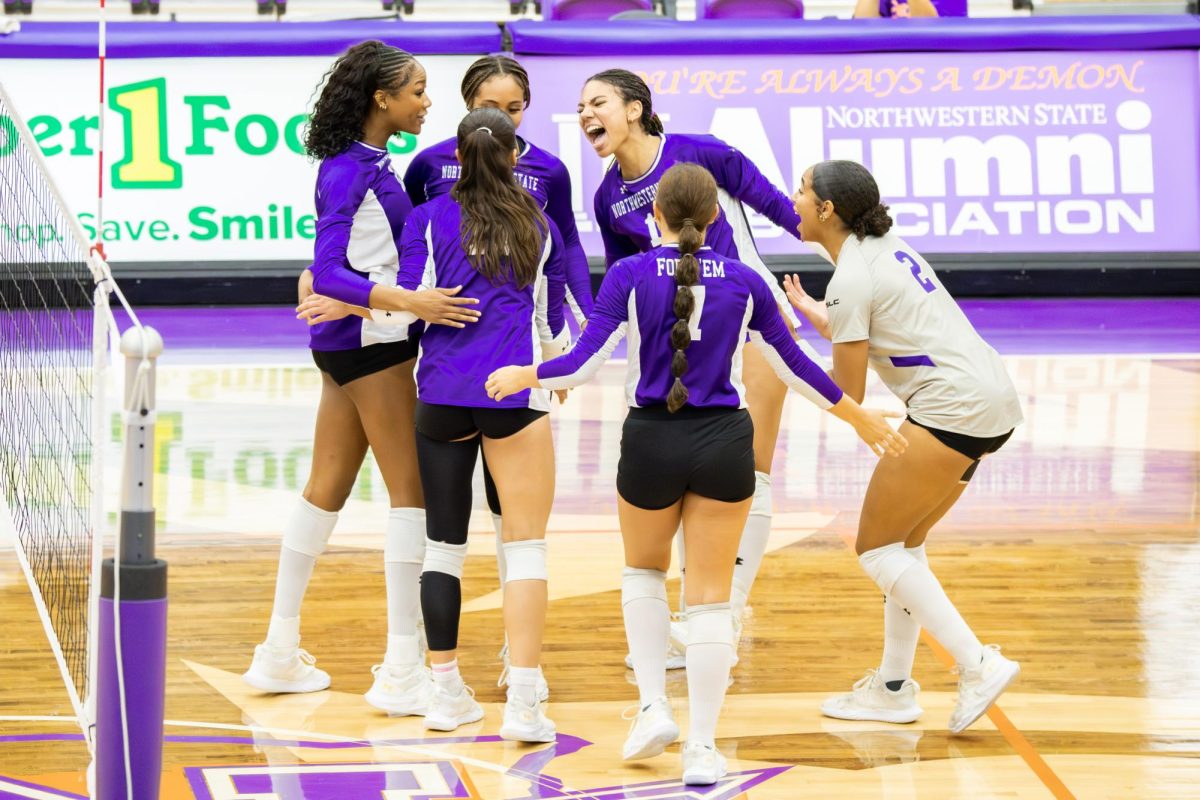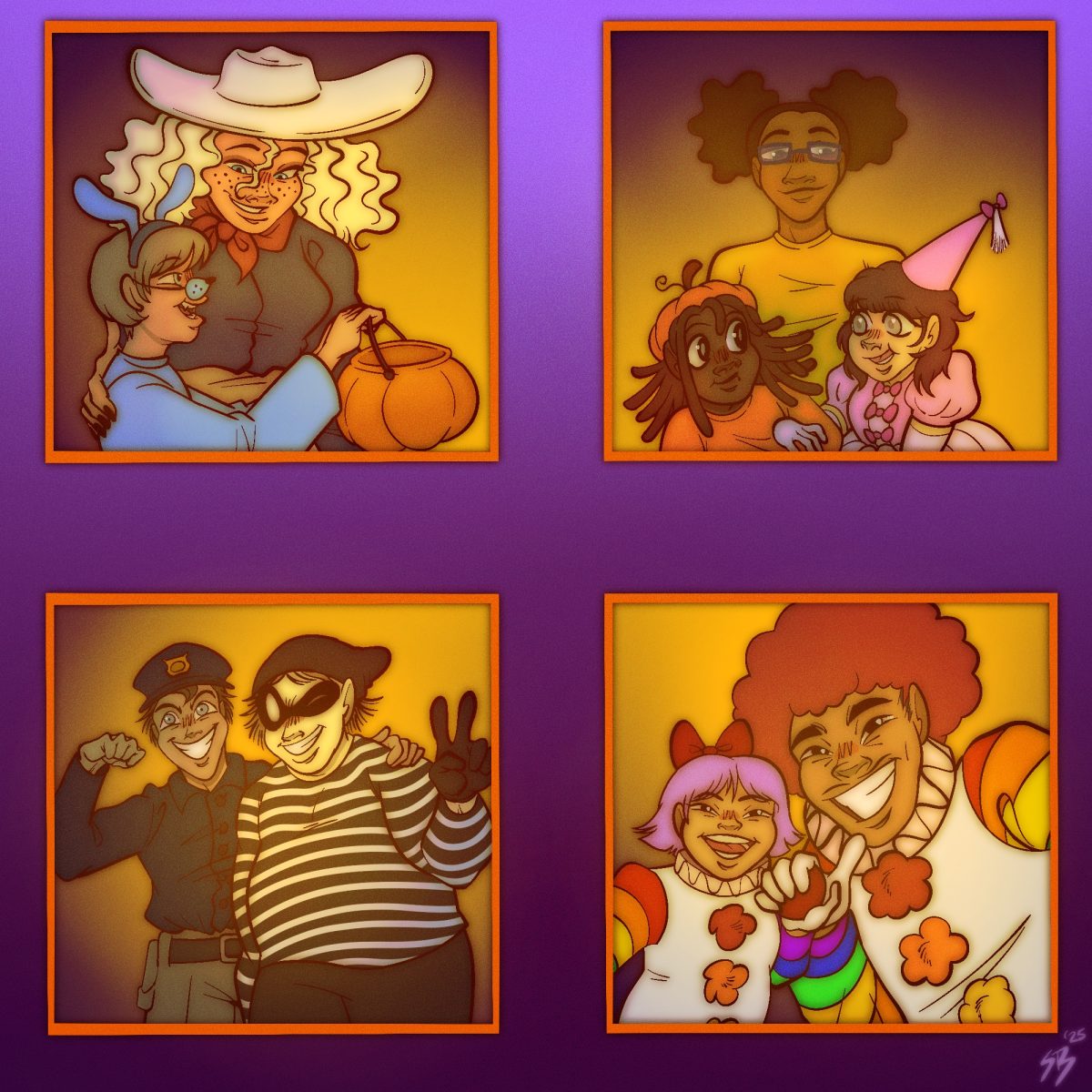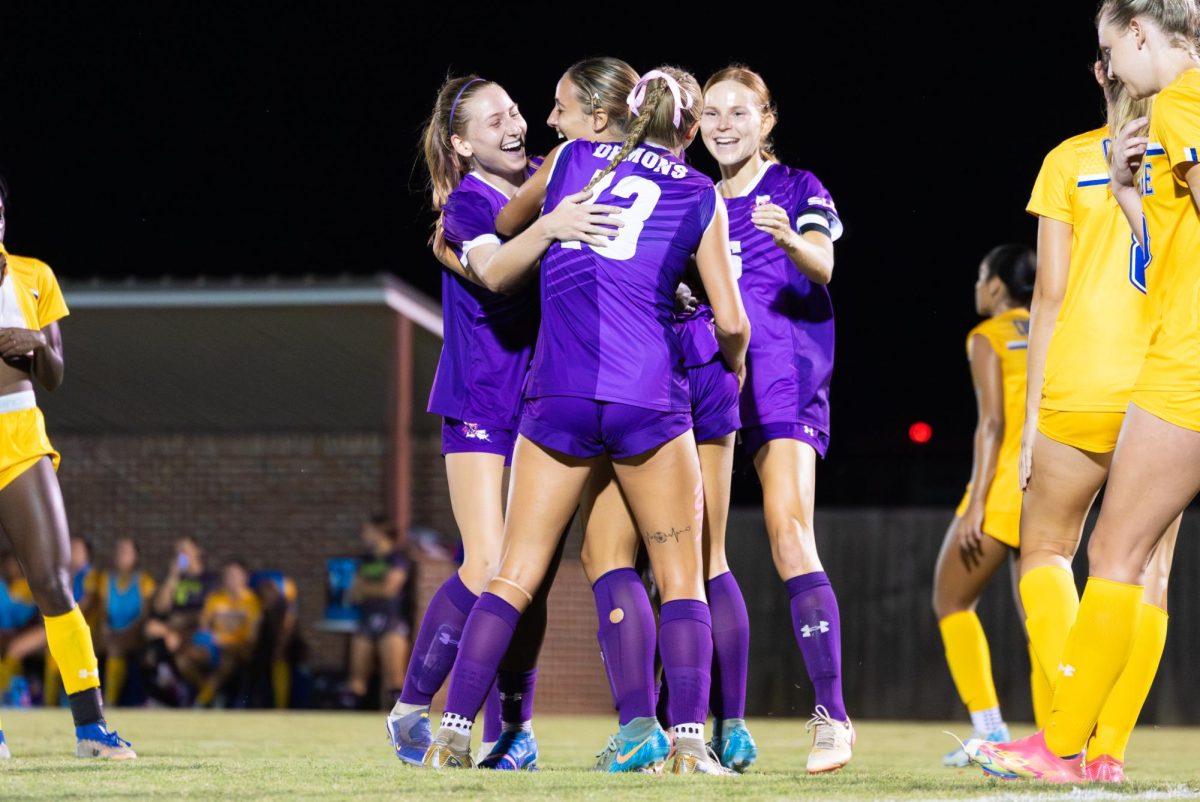Students come into college not knowing the extent of what to expect. From one’s education to their experience, many questions arise. Some ask around, while others try to figure it out themselves.
At Northwestern State University of Louisiana, professors offered their advice to incoming freshmen.
Masahito Kuroda, a professor of euphonium and tuba at NSU, shared his thoughts with students majoring in music.
“The most important part of being a music major is perseverance. You become a music major because of the love of music you have, but some of the classes you go through take perseverance,” Kuroda said. “When I was in college, I was not a stellar student at all. What drove me was my love of music.”
This can apply to students with any major. Professors agree it takes dedication for all students to gain their desired education. Within this process, there can be moments in which students start to forget the reason they chose to study their major.
“If you start to get lost, do a little of a soul search and find what makes it so special to you,” Kuroda said. “It has to come from within; it’s not something somebody can tell you why it’s important, but it has to come from you.”
Kuroda studied music at Tokyo Gakugei University, Morehead State University in Kentucky, the Academy of Music and Performing arts in Slovak Republic, Europe and more. With this, he had to do his own soul search to keep in mind why he was studying music to become an educator.
“To me, the most prominent part of music being included in the school curriculum is the uniqueness of connecting people,” Kuroda said. “The message that you are receiving through the music may be different depending on who you are and your mindset at the moment. You listen to the same song, but it talks to you differently.”
This concept was a large motivator for Kuroda to continue his studies. He explained that music allows the composer, the performer and the listener to communicate with one another.
“To me, that communication is so precious because I’m from a different country, and music was the only other language I could actually relate to people for a long period of time; I was not very fluent in English and even now I speak with a strong accent,” shared Kuroda. “But when I pick up my instrument and I play for somebody, people seem to get what I am trying to say, and it makes me so happy.”
Kuroda has lived in at least four different countries studying music and taking lessons. For international students to relate to, he explained the difficulties he faced, especially because he did not know anyone else from Japan at his university in the United States.
He did not get to talk in his own language until he could go back home to visit my family, so the language barrier was a large obstacle for him.
“I could not even order a McDonald’s hamburger,” Kuroda shared. “But the good news is that the language ability does develop really quickly.
Kuroda shared that incoming international students will be able to cope with any language barriers they may face. However, this is not something that should be done alone.
“If there is any advice I can give international students, it’s to connect to your professors. Make friends quickly with students who are in the same shoes and ask for help; don’t try to struggle by yourself,” Kuroda said.
When in college, Kuroda did not let the struggles he faced as an international student prevent him from achieving his doctorate. Kuroda persevered, learning everything he could and trying his best. He advised incoming international students based on his own experiences.
“Try not to talk so fast and don’t hesitate to ask someone to repeat what they said slowly. If you don’t get the concept the professor is trying to teach during the class, find a time to knock on their doors and ask them after the class,” Kuroda said. “Some students come from a culture where raising hands and asking questions is not nice–not in here. There are no bad questions and there’s nothing wrong with not knowing — that’s why you’re here.”
Some students are unsure of what they may want to study when first entering college. Anna Kathryn Cox-Vaughn, the assistant professor and clinical coordinator for the accelerated Bachelor of Science in the nursing program on the Shreveport campus, shared some tips with those feeling this uncertainty.
“I suggest taking the core curriculum the first semester but spend time looking at the fields of study your friends are pursuing. A person should consider their interests or what they are passionate about,” Vaughn said.
When it comes to nursing specifically, Vaugn elaborated on considering one’s academic limitations along with their passions, not just their overall goal in life.
“I have very strong feelings about people who choose any medical field because they believe there is money. Of course there can be significant financial benefits in becoming a nurse, but what if you aren’t good at it,” Vaughn said. “You see, if you aren’t passionate about saving lives, you probably won’t. Then people will die. I know that sounds harsh to say to an incoming freshman, but it’s true: people who are passionate about what they do strive to develop the most competent skills.
Vaughn lets students who aren’t passionate but still want to major in nursing know that the process to become a competent nurse might be difficult for them.
Academically, if a student is struggling in pre-requisite courses, Vaugh has found that students become discouraged and even leave college. Instead, she feels students should work with advisers to explore other fields that also meet their criteria of what they want to do in life.
Within college, students can get caught up in the stress of how many things are going on around them: classes, parties, relationships, projects, exams and more. On top of this, they need to remember to take care of themselves.
“The most important advice I can give incoming freshmen is time management; your parents no longer set your alarm, nor do they fix your meals. Learning to be responsible for those things is the biggest adjustment for students in their first year,” Vaughn shared. “Then, learning how to study for college is nothing like it was in high school. Learning how to read a syllabus is a challenge for freshmen.”
Sometimes, even the little things can feel overwhelming for students, but there are ways to deal with the challenging times.
“Plan before they happen; I know that sounds strange, but it’s true,” Vaughn said. “Find friends where you have interests, learn how to be a friend in order to make friends and go to college to find the student organizations that interest you. This can be the Catholic students, the Baptist students or the Dungeons and Dragons group that meets every Friday night.”
At NSU, there is a club for everybody. If one feels as though there is not a club that interests them, they can also make their own club. Joining organizations that are of one’s interest is important because, according to Vaugn, college is about finding those who will be your friends for life. They will be the ones there for you when life gets difficult.
“I have a family member who was bullied in high school and was so grateful when COVID-19 caused her to spend her last two years of high school learning from home,” Vaughn shared. “But she went to college and found her people and not only survived, but she thrived.”
Connecting with one’s professors or adviser is a great way to gain more insight and advice for the college experience.
“I tell my students before an exam when they are anxious and feeling the weight of the world on their shoulders, ‘This is just a test. It’s really not that important. Because tomorrow the sun is still going to come up, and the people who love you today are still going to love you tomorrow. Life is many things. But this? This is just a test,’” Vaughn said.
At NSU, there is a large support group made up of professors, advisers and more.
Emily Zering, the director of marketing and fan engagement at NSU athletics and an assistant professor in the department of New Media, Journalism and Communication Arts, has many students she advises.
“We are all here to help and support you. You’ll have highs and lows, but just take the victories and the lessons, keep going, have fun and don’t stress in silence. If you are struggling with something, reach out to your professors, advisers, counselors,” Zering said. “Even if it feels difficult, it’s easier to face it and get through it.”
Numerous professors stress the idea of reaching out when feelings such as stress and doubt arise.
“It’s important to be mindful of your mental wellbeing. While mental health is very specific to each person, some general suggestions would be to spend time outside without your phone each day, only say yes to opportunities you are genuinely excited about, limit scrolling time and be disciplined in maintaining a schedule for your responsibilities, so they don’t pile up,” Zering said.
Throughout each school year, NSU has many campus events and sports games going on, and students are encouraged to attend the ones that interest them.
“As far as athletics goes, our student-athletes work extremely hard year-round to compete at the Division I level, and support from their peers means everything to them,” Zering said. “And Collegiate events can be the backdrop for some of the best memories you will take with you after graduating. You may also discover something new that you are passionate about or decide to join an organization based on your experience.”
For some, college is an experience like no other. It is where many students find their place. As suggested by many professors, students should always feel free to reach out, try their best in each class, have fun and follow their passions.

